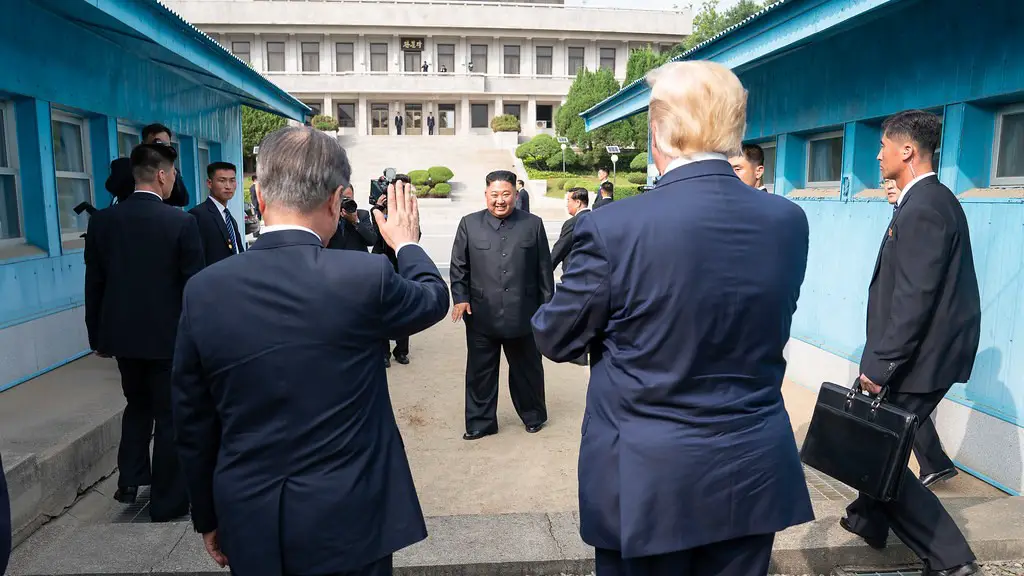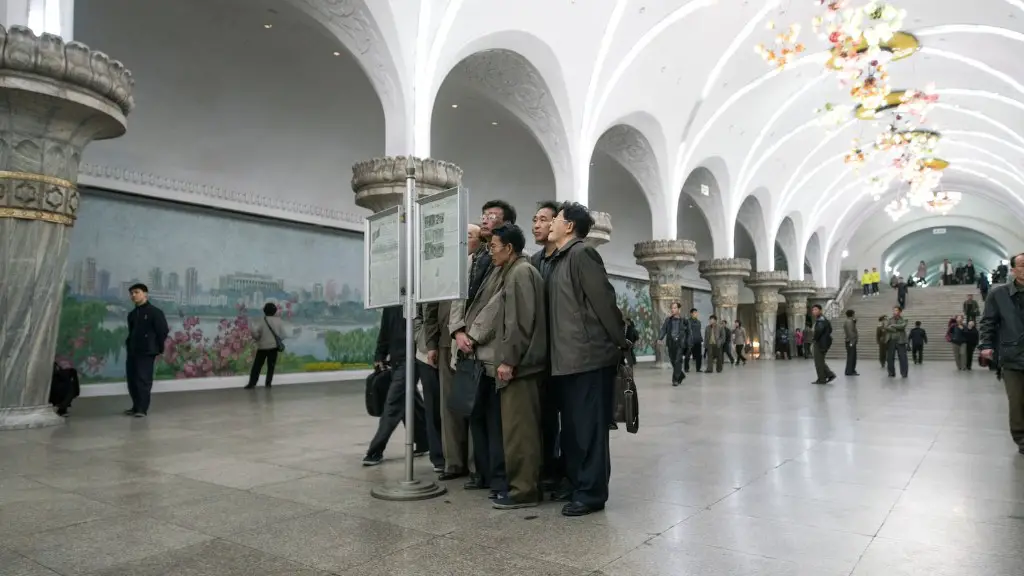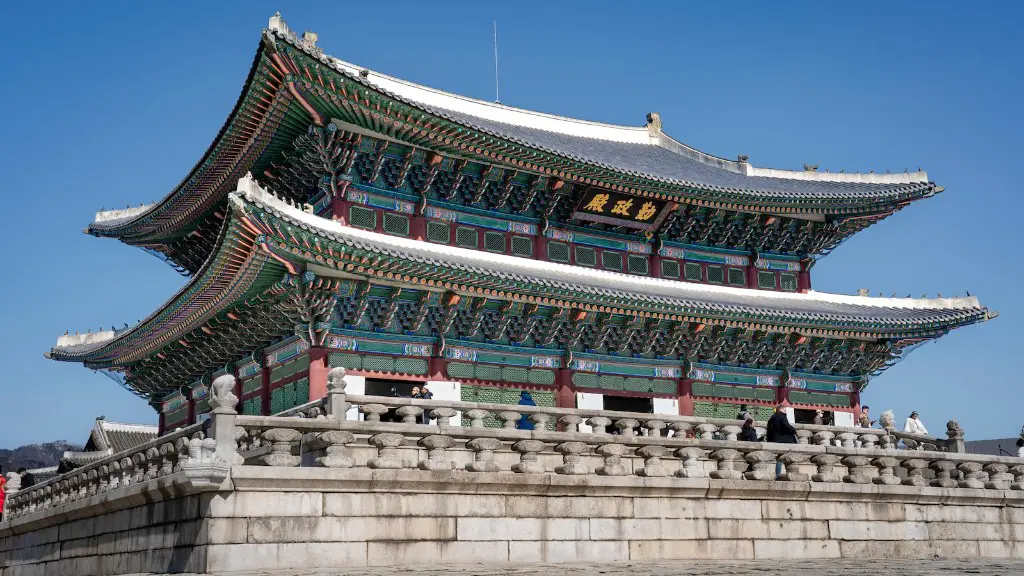Historical Development of Tensions Between America And North Korea
The tension between the United States and North Korea has been ongoing since the Korean War of the 1950s. During that period, the North aligned themselves with the Soviet Union and the South with the United States. After the armistice of 1953, numerous negotiations and ceasefires were put in place in order to prevent a return to war. Despite this, relations between the two governments have been characterized by distrust and animosity since the war.
Over the years, both countries have accused each other of various human rights violations and threats of war. In recent years, the primary source of tension has been North Korea’s development of nuclear weapons and the threat they pose to the United States and its allies. The United States has responded by imposing sanctions on North Korea and maintaining a strong military presence in the region.
The American Perspective on North Korea’s Nuclear Program
The United States and North Korea have been in direct opposition over North Korea’s nuclear weapons program. American leaders have repeatedly accused North Korea of violating United Nations Security Council resolutions and pursuing a reckless nuclear buildup in the region. The United States and its allies have responded by imposing trade sanctions and condemnation, while they insist on denuclearization.
At the same time, the United States and its allies have maintained a strong military presence in the region and have consistently threatened military action should North Korea refuse to denuclearize. American leaders have also proposed a variety of peace plans and diplomatic initiatives which have repeatedly been rejected by North Korea.
North Korean Viewpoints on International Relations and U.S Policy
North Korea has maintained an isolationist stance on international relations for many years. They have also sought to eliminate U.S influence in the area and challenge economic and political power structures in the region. North Korea has maintained a strong self-defense policy and has accused the United States of trying to overthrow its government and strangle its economy.
North Korean officials have also accused the United States of exploiting the country by imposing sanctions and using the country as a bargaining chip in international negotiations. North Korea has also criticized U.S military action in the region, accusing the United States of trying to impose its will on other nations and destabilizing the region.
North Korean Nuclear Program
North Korea’s nuclear program has been a source of tension between the two countries for over a decade. North Korea claims the program is for peaceful means of energy production, but their aggressive testing of nuclear weapons and the country’s pursuit of missile technology has raised suspicions among the United States and its allies. The United States has responded by imposing sanctions and threatening military action should the country not denuclearize.
In recent years, the United States has attempted to solve the issue through diplomatic conversations with North Korea and has proposed a variety of peace plans. However, to date, none of these plans have been successful and tensions between the two countries remain high.
The Threat Of War
Tensions between the United States and North Korea have steadily increased in recent years, with the threat of war becoming a real possibility. The United States has maintained its strong military presence in the region and has threatened military action in the event of North Korea conducting further ballistic missile tests. North Korea has responded with threats of its own and its leader Kim Jong-Un has said the country is ready to use a nuclear weapon if its security is threatened.
The Trump administration has continued to be vocal in its criticism of North Korea’s nuclear program and its leader, but his administration’s attempts to broker a peace deal have so far been unsuccessful. As the tension between the two countries continues to escalate, the threat of war remains a real and dangerous possibility.
Effects Of War On The Region And The World
A war between the United States and North Korea would have far reaching implications for the region and the world. An inevitable outcome would be heavy civilian casualties, economic loss and environmental disruption. The effects of such a conflict would reverberate throughout the region and the economic repercussions would be felt worldwide.
The use of nuclear weapons would be a particular area of concern, and the potential for such weapons to be used could have catastrophic consequences. In addition, regional powers such as China and South Korea could become embroiled in the conflict and cause further unrest in the region.
Role Of Sanctions In The Conflict
The United States has imposed a variety of sanctions on North Korea in an effort to get them to abandon their nuclear weapons program. Sanctions have been used as a tool to try and prevent North Korea from further developing their weapons as well as furthering their nuclear ambitions.
The effectiveness of such sanctions is debatable, with some believing they are damaging North Korea’s economy while still failing to persuade the country to abandon their nuclear program. Other critics argue that sanctions are simply a form of collective punishment and will do little to alleviate tensions between the United States and North Korea.
The Impact Of Social Movements
In recent years, there has been a rise of social movements around the world calling for peace and diplomatic solutions to the crisis. Such movements have highlighted the need for an end to the United States’ and North Korea’s hostile rhetoric and the threat of war.
The movements have also appealed to both countries to pursue a course of dialogue and negotiation in order to find a peaceful resolution to the conflict. Through their advocacy, the movements have sought to raise awareness of the potential dangers of war and the need for diplomatic solutions.
Possible Outcomes Of The Conflict
The conflict between the United States and North Korea remains unresolved, but there are a variety of potential outcomes. One possible conclusion is that the two countries continue the status quo of nuclear brinkmanship and hostile rhetoric, with the potential for war remaining high.
At the other end of the spectrum, a peaceful resolution to the conflict could be achieved through direct diplomatic negotiations between the United States and North Korea. Such negotiations could result in a joint agreement to denuclearize the Korean peninsula and possibly normalize diplomatic relations.
The Role Of International Diplomacy
International diplomatic efforts have been key in attempting to de-escalate tensions between the United States and North Korea. International organizations such as the United Nations have sought to mediate negotiations between the two countries and to bring the conflict to a peaceful resolution.
China, in particular, has played a key role in attempting to broker a peaceful solution and UN Secretary General Antonio Guterres has works to encourage North Korean cooperation in negotiations. Such diplomatic initiatives have been met with varying success and the ultimate outcome of the conflict remains to be seen.
Conclusion Of Existing Sanctions
The United States and its allies have used sanctions as a means to put pressure on North Korea and an attempt to convince them to abandon their nuclear program. While sanctions are intended to be a deterrent, there is no guarantee that they will succeed in achieving their aims.
The eventual success of sanctions will likely depend on whether or not the United States is willing to work towards a diplomatic resolution of the conflict. Ultimately, it is up to both the United States and North Korea to come to an agreement that will bring the conflict to an end.


